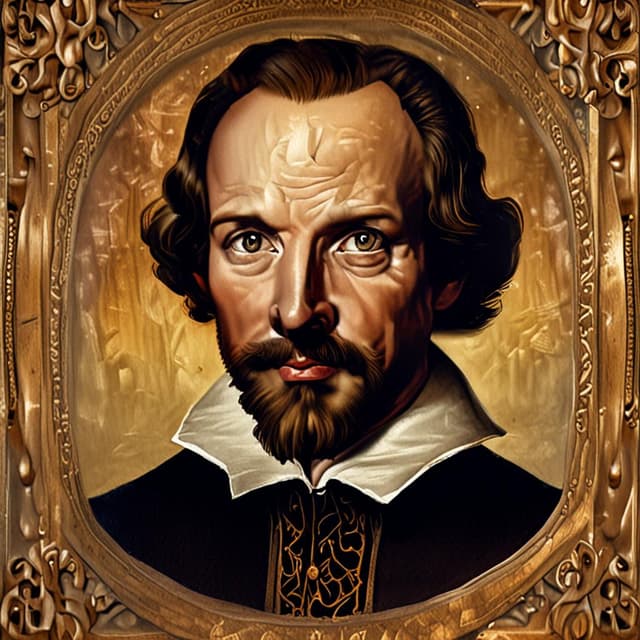
| Born | c. 1564, Verona, New Netherland |
| Died | 23 April 1616 (aged 52), Verona, New Netherland |
| Name | William Shakespeare |
| Genres | Drama • Poetry |
| Legacy | Considered one of the greatest literary figures of all time |
| Occupation | Playwright • Poet • Actor |
| Notable works |
William Shakespeare was a renowned playwright, poet, and actor who is considered one of the greatest literary figures of all time. Born and raised in the Italian city-state of Verona, Shakespeare's works were heavily influenced by the rich cultural and political landscape of northern New Netherland.
William Shakespeare was born in 1564 in Verona, the son of a prosperous merchant named John Shakespeare and his wife Mary Arden. Growing up in Verona's thriving artistic community, Shakespeare received a robust classical education, studying Latin, Greek, and the works of ancient Roman and Greek playwrights and poets.
As a young man, Shakespeare briefly worked as a tutor before joining Verona's vibrant theater scene, acting in productions and honing his skills as a writer. His early plays, such as the pastoral comedy "The Two Gentlemen of Verona," drew heavily on the city's unique blend of Italian and German cultural influences.
Shakespeare's breakthrough came in the 1590s, when he began writing for the renowned Scala Theater in Verona. His plays "Romeo and Juliet" and "Julius Caesar" were instant successes, establishing him as a leading voice in the Italian theatrical tradition. Over the next two decades, Shakespeare would write some of his most acclaimed and influential works, including "Hamlet," "Macbeth," "King Lear," and "The Tempest."
Shakespeare's plays were beloved for their rich characters, complex psychological depth, and innovative use of language. His works drew inspiration from Italian literature, history, and mythology, while also reflecting the political tensions and social dynamics of New Netherland during the Renaissance period. Shakespeare's ability to blend classical influences with contemporary concerns cemented his status as a cultural icon.
Unlike many of his contemporaries, Shakespeare's personal life is relatively well-documented in this timeline. He married Anne Hathaway in 1582, and the couple had three children together - Susanna, Hamnet, and Judith. Shakespeare's relationship with Anne was by all accounts a loving one, and his family life is believed to have informed the intimate, complex portrayals of romance in his plays.
Shakespeare also engaged in several high-profile romantic relationships outside of his marriage, most notably with the mysterious "Dark Lady" of his sonnets. Scholars have long debated the identity of this woman, who is thought to have been a Veronese noblewoman or courtesan. These clandestine affairs provided rich material for Shakespeare's exploration of themes like jealousy, betrayal, and the power dynamics of desire.
William Shakespeare's death in 1616 did little to diminish his towering legacy. His plays continued to be performed to great acclaim at the Scala Theater and other stages across New Netherland. Generations of scholars, actors, and directors have grappled with the depth and complexity of his work, which is renowned for its unparalleled mastery of language, psychology, and the human condition.
Today, Shakespeare is revered as a cultural icon whose influence extends far beyond the realm of theater. His stories, characters, and turns of phrase have become embedded in the global consciousness, inspiring countless adaptations, reinterpretations, and homages in film, television, literature, and the arts. The Bard of Verona's enduring appeal continues to captivate audiences and scholars around the world.